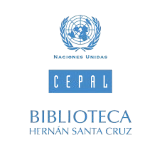Justice and truth in the jurisdictional provision, according to Brazilian civil procedural law
Keywords:
Access to justice, Individual rights and guarantees, Due process. Proof (civil procedure)Abstract
Concerned about the constitutional guarantee of a democratic and due process, art. 369 of the CPC/2015 ensures that the parties have the right to use all legal means, as well as morally legitimate, although not specified in this Code, to prove the truth of the facts which underlie the application or defense and effectively influence the judge’s conviction. The purpose of this study is to demonstrate that the legal process systematized according to principles and values recommended by the Constitution (due process) can not be reduced to a mere cold technique of conflict resolution.
One can not think of justice separated from truth, no matter absolute truth is unreachable by human science. What justice requires of those who assumed the burden of accomplishing it is the commitment to seek for the feasible truth, within the proper reasonable criteria of the legal method. Given the technical limitations of procedural instruction and given the guiding rules to built the judge’s conviction, the evaluation the evidence veracity is almost always a probability judgment and, more rarely, as a judgment of certainty (fact search through rules extracted from the exact sciences). Nonetheless, the fact that the certification of truth occur under the practical imposition that demands to prove a fact when it turns up in the instruction of the process as “strongly probable” does not water down the commitment of the due process to the truth. This is because the assessment of likelihood is not freely made by the judge, but through logical deduction.
Downloads
Downloads
Published
How to Cite
Issue
Section
License
Copyright (c) 2019 Revista do Tribunal Regional Federal da 1ª Região

This work is licensed under a Creative Commons Attribution-NonCommercial-NoDerivatives 4.0 International License.
Ao submeterem artigos à Revista do Tribunal Regional Federal da Primeira Região, os autores declaram ser titulares dos direitos autorais, respondendo exclusivamente por quaisquer reclamações relacionadas a tais direitos, bem como autorizam a Revista, sem ônus, a publicar os referidos textos em qualquer meio, sem limitações quanto ao prazo, ao território, ou qualquer outra. A Revista fica também autorizada a adequar os textos a seus formatos de publicação e a modificá-los para garantir o respeito à norma culta da língua portuguesa.





















